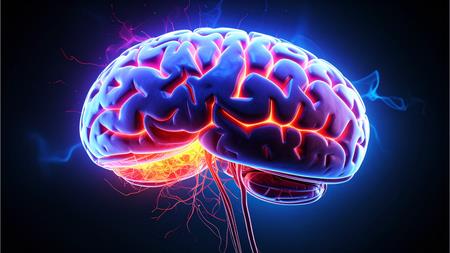Bacteria In Your Mouth May Trigger Parkinson's Disease Risk: Study
Researchers from the Pohang University of Science and Technology in South Korea identified the mechanism by which metabolites produced by oral bacteria in the gut may trigger the development of Parkinson's disease -- a major neurological disorder characterised by tremors, stiffness, and slowed movement.
"Our study provides a mechanistic understanding of how oral microbes in the gut can influence the brain and contribute to the development of Parkinson's disease," said Professor Ara Koh.
"It highlights the potential of targeting the gut microbiota as a therapeutic strategy, offering a new direction for Parkinson's treatment."
Although previous studies suggested that the gut microbiota of individuals with Parkinson's differs from that of healthy individuals, the specific microbes and metabolites have remained unclear.
The new findings, published in the journal Nature Communications, showed an increased abundance of Streptococcus mutans -- a well-known oral bacterium that causes dental caries -- in the gut microbiome of Parkinson's patients.
More importantly, S. mutans produces the enzyme urocanate reductase (UrdA) and its metabolite imidazole propionate (ImP), both of which were present at elevated levels in the gut and blood of patients.
ImP appeared capable of entering systemic circulation, reaching the brain, and contributing to the loss of dopaminergic neurons.
Using mouse models, the researchers introduced S. mutans into the gut or engineered E. coli to express UrdA.
As a result, the mice showed elevated ImP levels in blood and brain tissue, along with the hallmark features of Parkinson's symptoms: loss of dopaminergic neurons, heightened neuroinflammation, impaired motor function, and increased aggregation of alpha-synuclein, a protein central to disease progression.
Further experiments demonstrated that these effects depend on the activation of the signalling protein complex mTORC1.
Treating mice with an mTORC1 inhibitor significantly reduced neuroinflammation, neuronal loss, alpha-synuclein aggregation, and motor dysfunction.
This suggests that targeting the oral-gut microbiome and its metabolites may offer new therapeutic strategies for Parkinson's.

Legal Disclaimer:
MENAFN provides the
information “as is” without warranty of any kind. We do not accept
any responsibility or liability for the accuracy, content, images,
videos, licenses, completeness, legality, or reliability of the information
contained in this article. If you have any complaints or copyright
issues related to this article, kindly contact the provider above.
Most popular stories
Market Research

- New Cryptocurrency Mutuum Finance (MUTM) Raises $15.8M As Phase 6 Reaches 40%
- Bydfi Joins Korea Blockchain Week 2025 (KBW2025): Deepening Web3 Engagement
- Yield Basis Nears Mainnet Launch As Curve DAO Votes On Crvusd Proposal
- 0G Labs Launches Aristotle Mainnet With Largest Day-One Ecosystem For Decentralized AI
- Ethereum-Based Defi Crypto Mutuum Finance (MUTM) Raises Over $16 Million With More Than 720M Tokens Sold
- Fintech's Gender Gap In Focus: Drofa Comms' Women Leading The Way Joins Evolvh3r's She Connects At TOKEN2049






















Comments
No comment